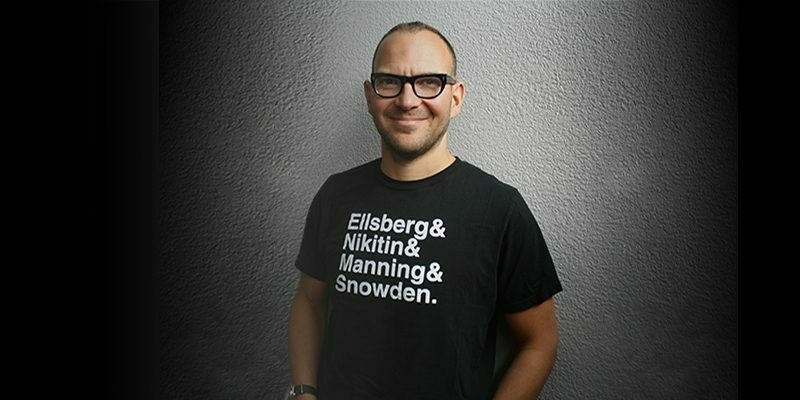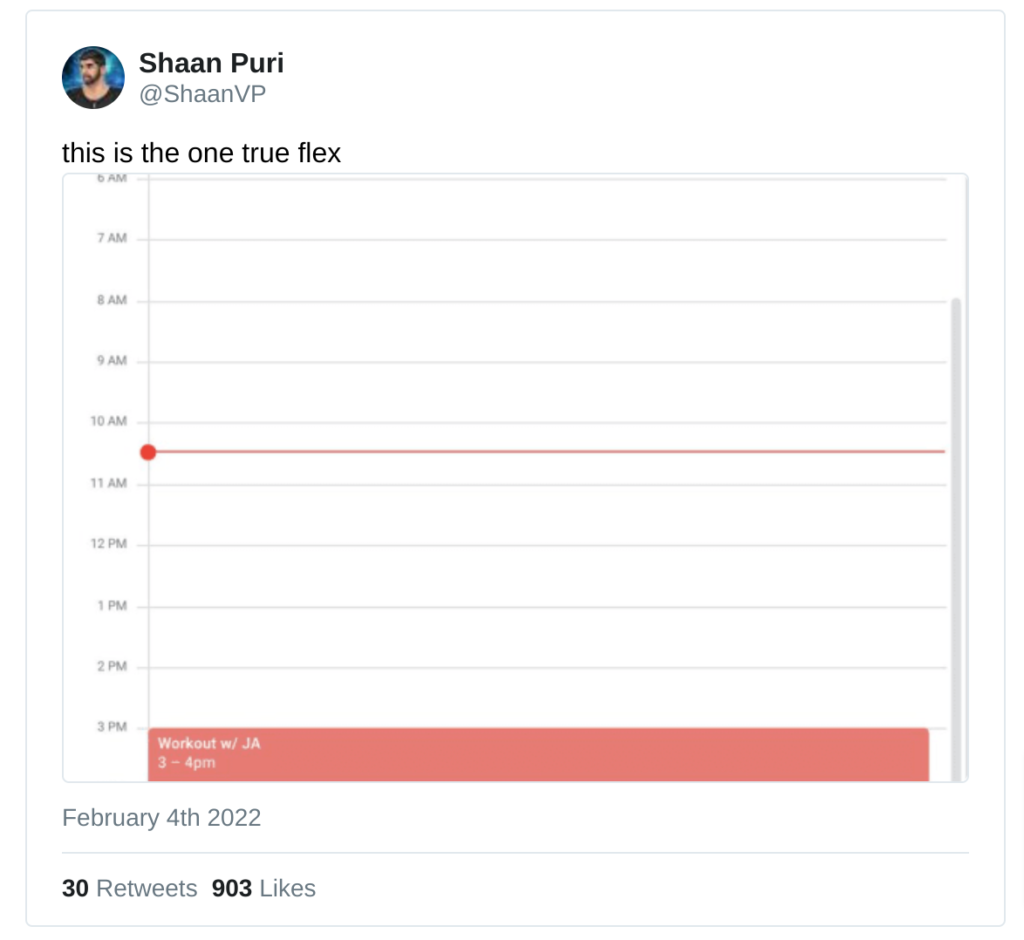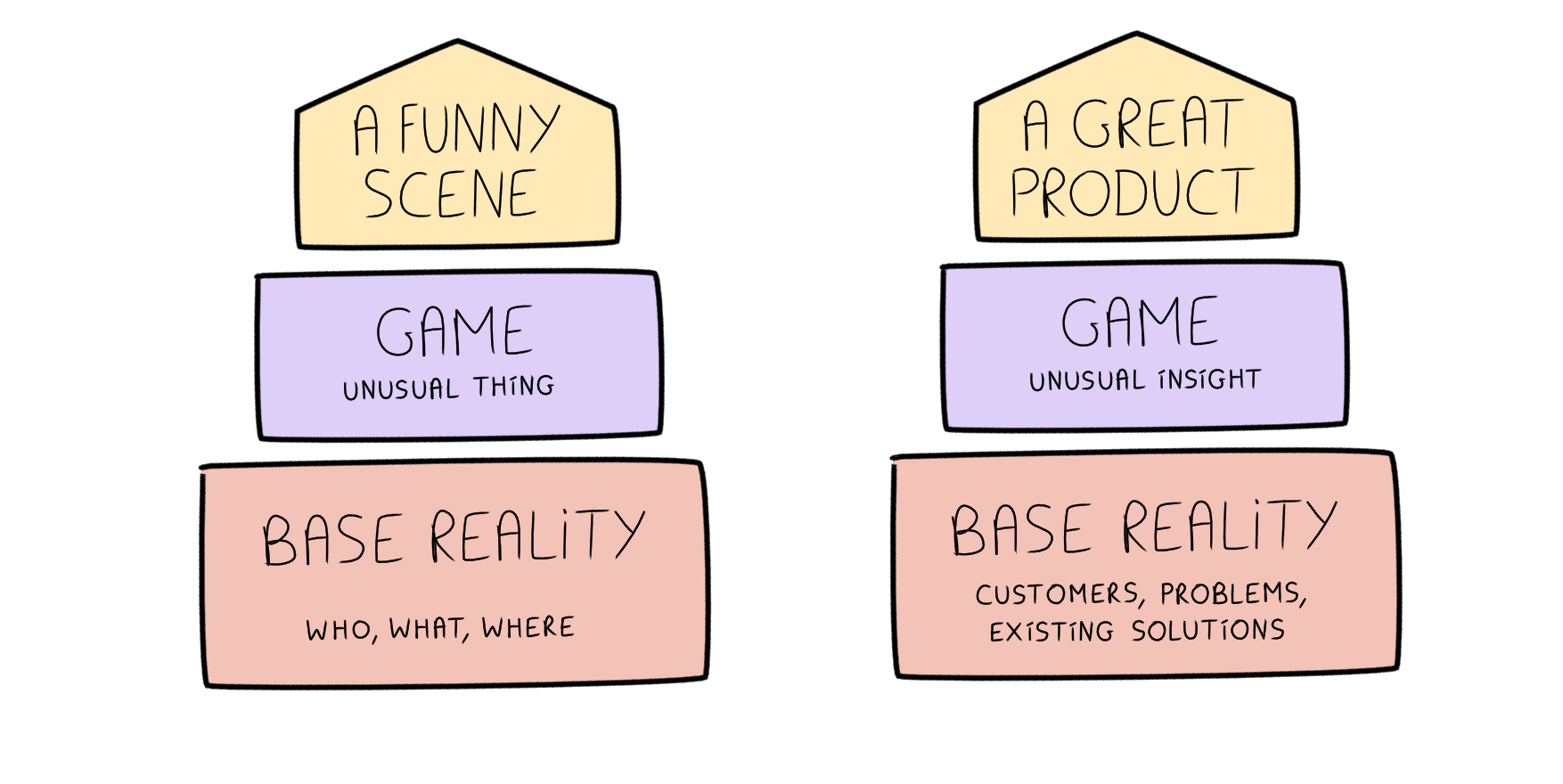Productivity is the enemy of creativity
I like the metaphor used in this post of being light a lightbulb: fully one, or off. In fact, not only have I organised my working life to be like this (I can’t work at half pace, and it’s burned me out when I’ve been employed), but this is the advice I give to my kids when they play sports.
“Most people in life are dim lights, they're on but they are not bright. Because they are trying to conserve energy. You should make a choice, you are either on or off. There is either GO time or there is relaxing time. Try to be more binary. You have more energy when it’s Go time" - Andrew “Cobra” Tate.Source: Be Like a Light Bulb: The Importance of Resting Ethic | The Hard Fork by Marvin Liao[…]
Naval [Ravikant] famously said: “Productivity is the Enemy of Creativity”
Rest is absolutely critical for high performance. Without it, it’s like revving your engine until it breaks or blows up. We’re in a new world now where our brains power everything. As the Doomberg crew calls it: “The Gig Economy for Brains.”
Naval again says: “Some of the most creative and productive people I have ever met work in multi-week bursts and then have weeks where they just idle with little done. It’s the nature of the human animal.”
All-in and fully energized OR quiet and at rest. There is no in between. This is a key habit for effective work in the modern day. Don’t be a dim light.
This bus ain't growing wings
Cory Doctorow: activist, technologist, sci-fi writer and all-round awesome human being has written a powerful article for Locus magazine. He likens the climate emergency to us being collectively trapped on a bus that’s speeding towards a cliff edge.
We’ll all die at the bottom of the canyon, but no-one will yank the wheel, as it would cause the bus to roll and many people to be hurt.
Source: Cory Doctorow: The Swerve | Locus Online
The good news is: climate denial is on the wane. The bad news is: deniers have pivoted to incrementalism: “We’ll fix the climate. Give us a couple decades to phase out oil and gas. Give us a couple decades to replace the cars and retrofit the houses. Give us a couple decades to invent cool direct-air carbon capture systems, or hydrogen cars that work just like gas cars, or to replace our overland aviation routes with high speed rail, or to increase our urban density and swap out cars for subways and buses. Give us a couple decades to keep making money. We’ll get there.”
In other words: “We’re pretty sure we can get some wings on this bus before it goes over the cliff. Keep your hands off the wheel. Someone could get really badly hurt.”
People are already getting really badly hurt, and it’s only going to get worse. We’re poised to break through key planetary boundaries – loss of biosphere diversity, ocean acidification, land poisoning – whose damage will be global, profound and sustained. Once we rupture these boundaries, we have no idea how to repair them. None of our current technologies will suffice, nor will any of the technologies we think we know how to make or might know how to make.
Improv as a tool for building better products
I’m a fan of metaphor and productive ambiguity, and so I like this improv approach to product development.
Some improv scenes are initiated with a generic line and performers extract the game organically. e.g. "I can't believe it's midnight" is an intriguing start to a scene but there's no obvious game. In contrast, some improv scenes are initiated with strong game right away. e.g. initiating the scene with "No, you're an accountant, you can't just become a lion tamer". Both ways can lead to hilarious scenes.Source: Your product is a joke | The PaperclipLikewise, some products are initiated with a rough idea. This is in the camp of Eric Reis' model, where you’re lean, get feedback, and iterate quickly. The idea is to treat the path to product market fit as a series of experiments with hypotheses. In contrast, there is Keith Rabois' model, where you have a strong vision from day 0 and not much changes from then. The idea is that you have a master plan from the start, and you get heads down on executing it. Check this post by Casey Winters comparing these models with far more nuance.

